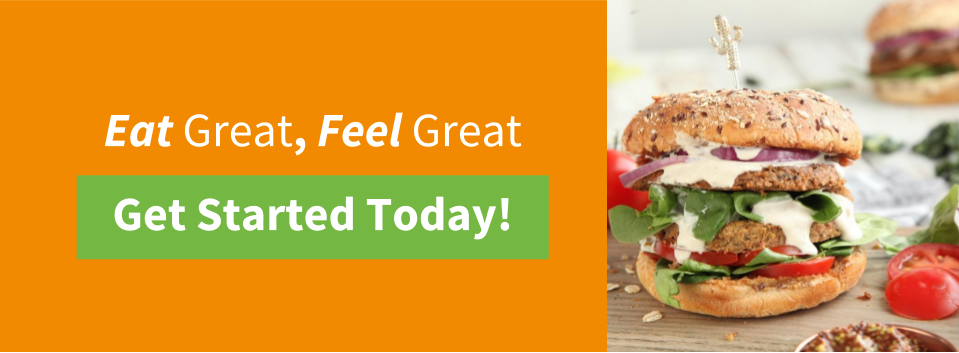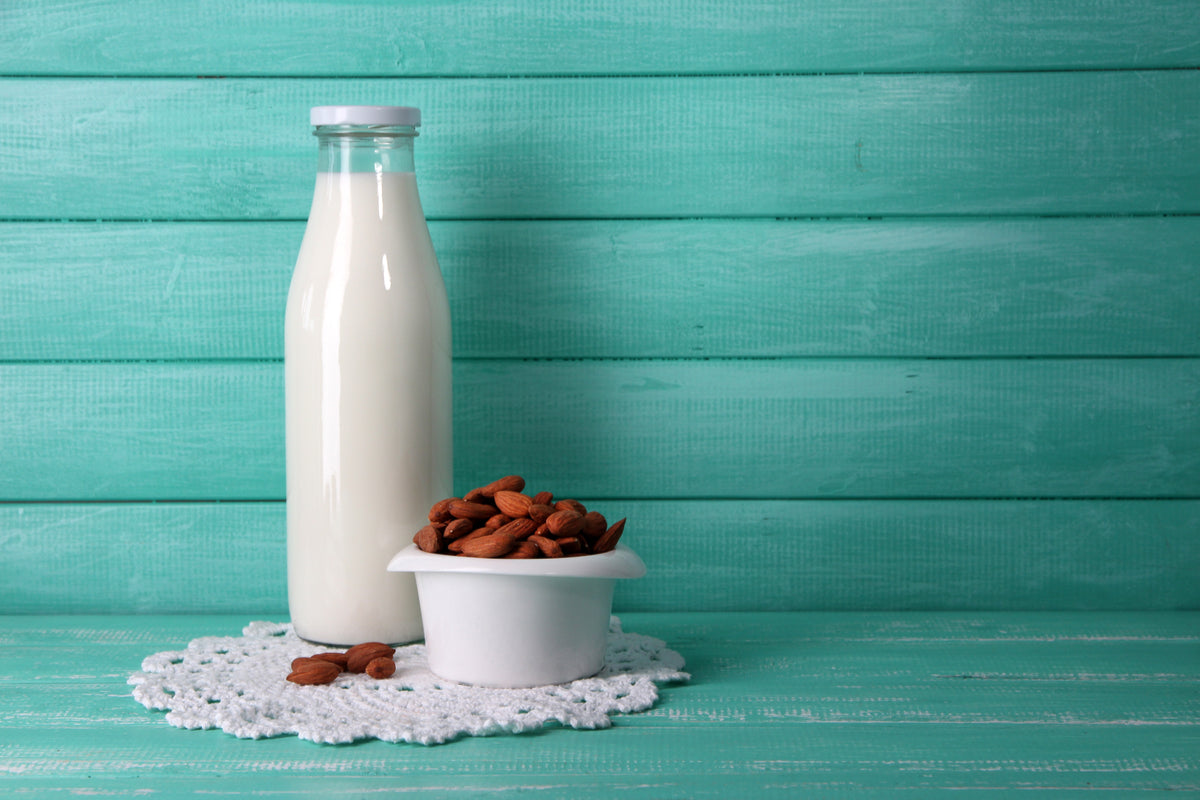
Quick Synopsis
Worried you can't get all the nutrients you need on a plant-based diet? The truth is you can get everything your body needs from plants. The one (kind of) exception: B12. Here's the scoop on what B12 is, why your body needs it, and how to get it on a plant-based diet.
The Full Story
We all know that vitamins are essential to personal health, but the truth is they can be a real pain to keep track of. Distinctions between water-soluble and fat-soluble vitamins, a nomenclature that only sort of follows the alphabet (what happened to vitamin F?), reclassification of certain vitamins — it’s enough to make you want to stop checking nutrition labels all together!
And that’s a good thing.
It may fly in the face of many fad diets which focus heavily on tracking and monitoring specific nutritional intakes, but the truth is that you don’t need to chart your vitamins to improve your health. By adopting a natural, plant-based diet (and cutting out the junk), you’ll be giving your body the essential nutrients it needs. However, there is one specific vitamin that gets to be an exception to the above rule: vitamin B12.
B12: The Meat Vitamin
For vegans and those whose follow whole food plant-based diets, tracking vitamin B12 intake is essential. Why? Because the most abundant B12 source is animals. More specifically, vitamin B12 is found in large amounts in meat, fish, poultry, eggs, dairy, and organs (such as liver and kidney). In fact, there are no known naturally occurring vegetarian sources that offer vitamin B12 in any usable amounts. It’s been suggested that soil itself can be a B12 source, but unless you enjoy eating dirt (or unwashed vegetables), B12 from ground bacteria probably isn’t much of an option. Besides, a few dirty carrots from your garden aren’t going to give you enough B12 to make much of a difference anyway.
And that’s a real problem, because B12 helps the body perform several vital tasks. It plays an important role in nerve and blood cell health. It’s used to stave off megaloblastic anemia, which can cause fatigue, dizziness, aches, irregular heartbeat, and difficulty breathing. It’s even essential to DNA synthesis. B12 deficiency not something you want to experience.
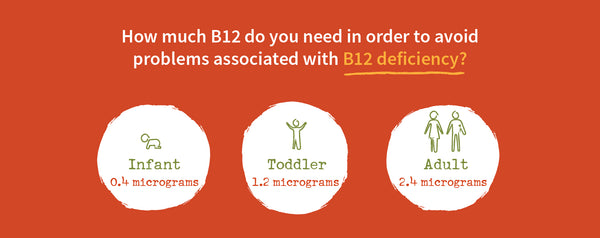
Additionally, how much B12 you or your family should be consuming is tied to age. An infant may need only 0.4 micrograms of B12 per day, where a four-year old should be ingesting three times as much, and teenagers and adults need 2.4 daily micrograms of vitamin B12 in order to avoid problems associated with B12 deficiency. And while that may not seem like a whole lot (it is being measured in micrograms, after all), the reality is that without incorporating animal sources into your meals, even these small amounts of B12 could be out of your reach.
So, the question then is this: How can someone on a primarily plant-based diet ensure that they’re getting enough B12?
Whole Food Plant-Based and Vegan Sources of B12
Knowing what foods have Vitamin B12 in them naturally isn’t much help when none of those foods are an option for your diet. Fortunately, you can still maintain a healthy B12 status without violating whole food plant-based or vegan-nutrition principles. This is all made possible through vitamin B12 fortification and supplementation.
We live in a golden age for plant-based and vegan nutrition, with the ability to extract and distill vital nutrients into easy-to-use forms, such as pills or additives. These nutrients, when used correctly, help cover up potential nutritional gaps. With the right fortified foods and supplements, vegans and others who rely on plant-based diets can get the vitamin B12 they need to remain healthy and active.
Let’s take a moment and review the two options for B12 for vegans and plant-based dieters: supplements and fortified foods.
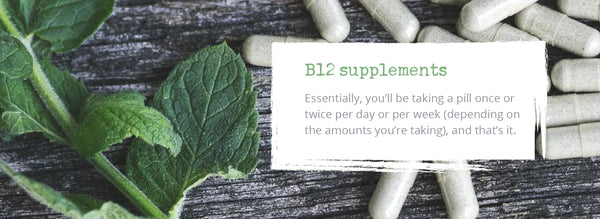
-
B12 supplements.
Taking B12 supplements is an effective way to ensure that your body is getting the right amounts of this crucial nutrient, and you won’t have to make any drastic changes to your plant-based diet. Essentially, you’ll be taking a pill once or twice per day or per week (depending on the amounts you’re taking), and that’s it. It doesn’t get much easier than that.
Of course, all it takes is a quick peek at the health section of your local grocery store to see that there are a lot of options when it comes to choosing a vitamin B12 supplement. Don’t just grab the first pill bottle you see; take the time to consider which choice will work best for you.
Not all vitamin B12 supplements are the same. For one thing, some may include animal-based filler materials, making them not suitable for vegans or those who follow whole food plant-based diets. To be clear, the B12 vitamin itself is perfectly animal-product free; it’s made from fermentation and bacteria (not from harvested animal products). The issue is that there might be other things added to the supplements, so be sure to check nutrition labels and do your research. Also, be aware that if you’re already taking a daily multivitamin, you may be getting your recommended amounts of B12 without even knowing it.
A popular B12 supplement solution for vegans and those with plant-based diets is to take cyanocobalamin — 2.5 micrograms once twice per day, or as much as 1,000 micrograms twice per week. This will help ensure that you’re getting more than enough B12 without having to resort to animal sources.
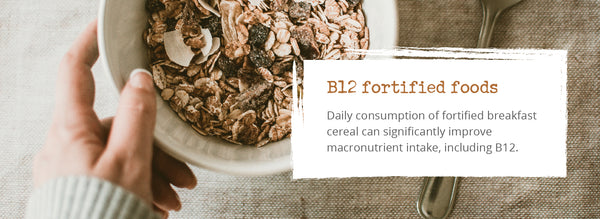
-
B12 fortified foods
The second vitamin B12 option for those with plant-based diets is to eat B12 fortified foods. B12 deficiency is not very common among those with whole food plant-based or vegan diets,because the good news is that B12 fortified foods are not difficult to find. Certain non-animal milk substitutes, drinks, condiments, and even some chewing gums are B12 fortified, but perhaps the most common solution is fortified breakfast cereal.
Once again, the B12 here is derived from non-animal sources, and studies show that daily consumption of fortified breakfast cereal can significantly improve macronutrient intake, including B12. At the same time, fortified cereals will likely include other essential vitamins and minerals. So what’s the downside?
Well, if your daily meal plan doesn’t already include a bowl of cereal for breakfast, then making this switch can be disruptive. And if the amounts of B12 aren’t high enough, you might be needing to include another bowl of cereal later in the day.
Another issue is that fortified cereal is going to include a lot more ingredients than a supplement would. This means more calories, carbs, sugars, etc., and those are additions you might not want. Again, checking labels and doing your research can make a big a difference here.
B12: For Plant-Based Dieters, Vegans, and Everyone Else
No matter who you are or what you specific dietary ideology, your body needs vitamin B12. As such, knowing what food contain B12, what foods don’t, and how you can improve you B12 intake is absolutely essential — for plant-based dieters, vegans, and everyone else.
By supplementing your current plant-based diet with additional sources of B12, you’ll be improving your B12 status and helping yourself avoid the nasty complications associated with B12 deficiency. So, find the B12 source that best fits your dietary lifestyle — even if that means checking nutrition labels. Sure, you can enjoy an effective plant-based diet without having to chart every nutrient you consume, but when it comes to B12, a little research is definitely a good thing.

